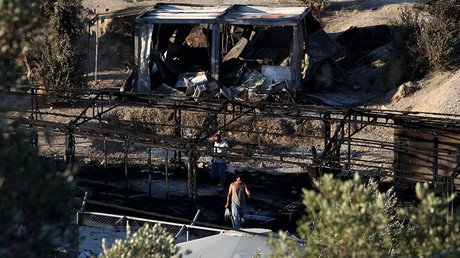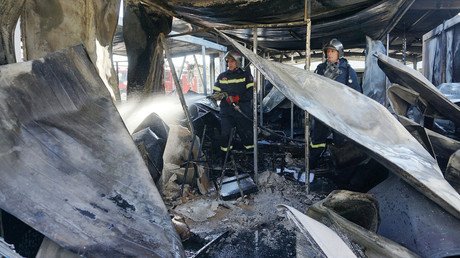‘Sex, Drugs & Refugees’: RTD exposes seedy reality some asylum-seekers face in Greece
Approximately 47,000 people, many of whom are unaccompanied minors, are stuck in Greece on account of the country’s closed-border policy. RT Documentary has spent time on the ground in Athens speaking to those affected.
“I’m 17 years old, I came from Turkey six months ago, by sea,” says one boy in Athens. “There are a lot of old people here who offer money for sex.”
Greece has long been one of the major entry points into Europe for migrants and refugees, many of whom are children and young people.
The UN has published a report this month in which it outlines the urgent need for more to be done in order to protect vulnerable children caught up in the various migrant crises around the world.
It outlines that a lack of information “deprives the affected children of protection and services they need.”
Speaking with RT, Lucio Melandri from the UNICEF response team in Greece outlined the various problems that the country faces in dealing with the crisis.
“Greece remains one of the gates to Europe and it finds itself with people coming but no opportunity to share the responsibility with European member states.” Melandri highlights the unwillingness of other EU member states to cooperate, who instead “are simply trying to prevent refugees seeking asylum in their own countries.”
The problem is made all the more alarming by the fact that there is a risk that some children may be trafficked for sex or, worse still, for their organs.
Speaking to those affected, RT Documentary has learned that many young migrants in Athens face the sad reality that they must do whatever they can in order to survive.
On Omonoia Square, just a 15-minute walk from Greece’s parliament, teenagers are selling themselves for as little as €10 ($12) and speak openly about the fact that they have taken to selling drugs and stealing to pay for bread, RT Documentary shows in its new film called ‘Sex, Drugs & Refugees,’ which is due to premiere on February 28.
The authorities in Greece have said that they are stretched five times beyond capacity. The country is overwhelmed by the huge number of refugees entering the country from Turkey, which has resulted in long delays in processing individuals and left many stranded.
Greece’s problems when it comes to protecting migrants is not limited to the capital, however. There are concerns about security in a number of refugee camps on Greek islands like Elliniko and Lesbos. The concerns here are focused on, but not limited to, the welfare of female migrants who are at risk of sexual-violence and discrimination. According to the 2017 Gender Equality Index, Greece ranked last among EU states in terms of overall gender equality.
Despite a recent decrease, unemployment remains high in Greece, with as much as 39.5% youth unemployment. With the country finding it difficult to find work for its own population, it is easy to imagine just how difficult it is for migrants to find legal employment.















